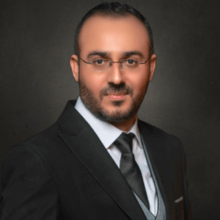Faculty & Student
Dr. Marjorie C. Gondré-Lewis is a tenured Professor of Neuroscience in the Department of Anatomy at The Howard University College of Medicine. Her research is focused on developing Precision Brain Health approaches that will benefit underserved communities. She leads the Developmental Neuropsychopharmacology Laboratory, which investigates mechanisms of addiction as well as brain reward pathways associated with nicotine, alcohol, and opioids. The laboratory also focuses on how the impact of early life stress and toxic stress exposure influences later development of neuropsychiatric disorders and substance use disorder (SUD) involving alcohol, nicotine, and opioids. The basic science arm of the laboratory uses rodent models of impaired reward processing to test behavior, pharmacology, genetics, and biochemistry associated with affective disorders and addiction. The Clinical Translational Research addresses health disparities that result from negative social determinants of health and ancestry-specific genetic variations not considered in treatment strategies. These are significant barriers to achieving brain health in the African American community, and the goal is to develop personalized solutions that will promote health equity for underserved populations. Co-morbidities such as SUD, HIV, and other chronic disorders exacerbate the impact on mental and behavioral health. The ultimate long-term goal of our research is to promote Brain Health in underserved communities with considerations for ethnicity-specific genomic variations.
Dr. Basheer Qolomany is an Assistant Professor at Howard University College of Medicine and the Director of AI-Driven Computational Medicine and Smart Health (AICMSH) Lab. As an interdisciplinary researcher, Dr. Qolomany possesses expertise in network science, evolutionary computation, and artificial intelligence. He leverages advanced AI technologies, including natural language processing, machine learning, deep learning, graph representation learning, swarm intelligence, and big data analytics, to address critical challenges in computational medicine, population health, cybersecurity, and smart health services.
Dr. Qolomany's research is driven by a passion for solving complex problems through the integration and analysis of large, heterogeneous data streams from diverse sources such as public health records, clinical health data, genome sequencing, medical imaging, IoT data, wearable data, digital health tools, social media, and news feeds. By combining these varied datasets with cutting-edge AI techniques, he develops predictive, diagnostic, and intervention models that advance healthcare delivery and improve patient outcomes. His work also explores the intersection of computational medicine and AI to enhance precision medicine, optimize therapeutic strategies, and address socio-demographic disparities in healthcare access and outcomes.
Dr. Qolomany has built a rich and diverse academic career, serving in various roles at institutions such as the University of Cincinnati, the University of Nebraska, Kennesaw State University, Western Michigan University, and the University of Duhok. Each experience has shaped his expertise and deepened his commitment to education and research.
Dr. Stuart D. Washington is using his prior experience to delineate the effects of HIV and substance use disorder on functional connectivity in the human brain. The Developmental Neuropsychopharmacology Laboratory acquired resting-state fMRI data from controls, people with HIV, people with substance use disorder, and people with a co-morbidity for HIV and substance use disorder. Dr. Washington is performing fMRI analyses on these data to discern similarities, differences, and interaction effects between these populations. His previous experience prepared him for the challenges involved in this project. As a post-doctoral fellow, Dr. Washington became involved in several functional MRI (fMRI) projects on typical and clinical human populations, including children with ASD, veterans with Gulf War Illness (GWI), and patients with Myalgic Encephalopathy/Chronic Fatigue Syndrome (ME/CFS) and Ornithine Transcarboxylase Deficiency. Dr. Washington co-authored several fMRI papers on people with GWI and/or ME/CFS that successfully employed AI/ML techniques. During his PhD thesis, he performed single-unit, in-vivo electrophysiology on awake mustached bats (Pteronotus parnellii). He also acquired and analyzed functional and structural MRI data in zebra finches (Taeniopygia guttata) and pale spear-nosed bats (Phyllostomus discolor).
Mr. Dickson Acheampong is an undergraduate majoring in Biology and Computer Science at Howard University. He learned about artificial intelligence and machine learning under the direction of Dwayne Dixon, PhD, a graduate of the Department of Mathematics at Howard University. Mr. Acheampong furthered his own knowledge of machine learning so well that he earned a place at a Google-sponsored summer training program for AI/ML training in Tallahassee, FL, in 2024. He gave a poster presentation on machine learning based classification of people with human immunodeficiency virus (HIV) at Howard University Research Day and another poster presentation on people with substance use disorder at the Society for Neuroscience in 2024.

